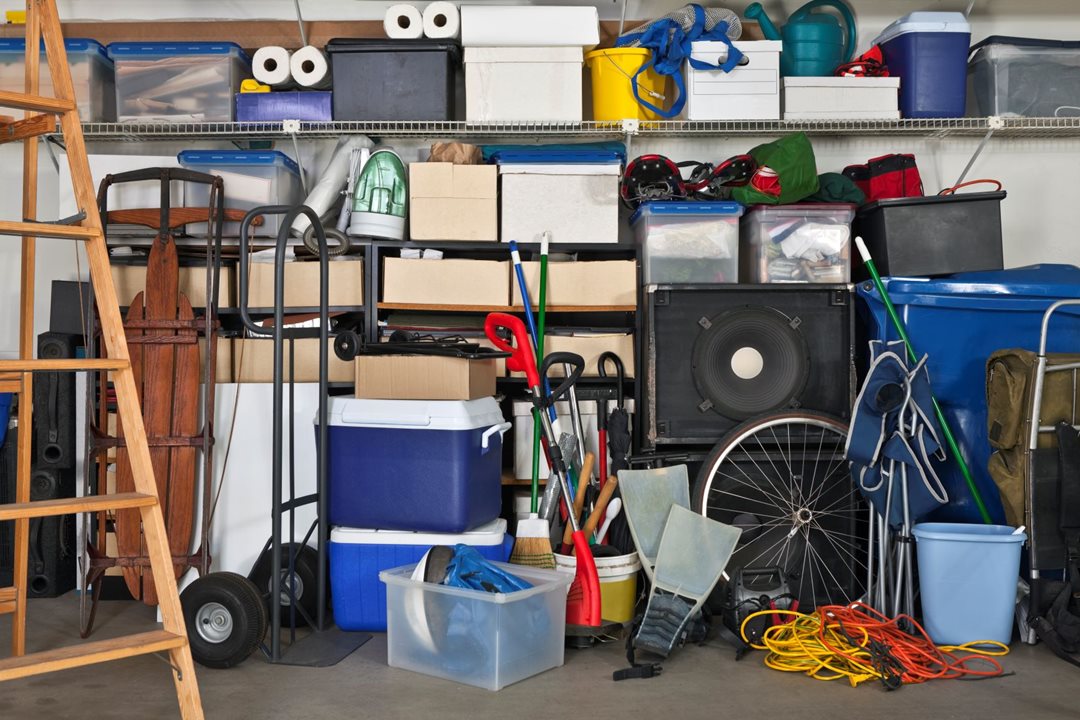Spring cleaning: Remove these items from your garage | PEMCO
.jpg) The garage can resemble an archeological dig of our lives. But there are some things you should not store in the garage, especially if it means risking your family's health and safety! Read on to find out which items in your garage you may need to move:
The garage can resemble an archeological dig of our lives. But there are some things you should not store in the garage, especially if it means risking your family's health and safety! Read on to find out which items in your garage you may need to move:
Propane tanks and lawnmower gas
It's fine to keep a spare propane tank on hand to prevent a mid-barbecue sputter, but needs to stay out of your garage. Otherwise, it can pose an explosion hazard in a house fire, and a leaking tank could spark a fire if fumes connect with an ignition source. You can keep it outside on a flat stable surface, far from open flame, or store it in a shed away from the house, where you also should keep your lawnmower gas.Food
Food stored in your garage attracts rodents and can go bad quickly from exposure to uncontrolled humidity and temperatures. Even canned food should be stored in a cool, dry place (50 to 70 degrees) to prevent rust from forming on lids. If you must store pet food or birdseed in the garage, put the bags in clean metal garbage cans with lids to keep rodents out.
Documents, books and photos
High humidity in garages causes paper to deteriorate and mildew. Photos fade, discolor, and stick together. They're better off inside a closet, stored in a waterproof, plastic container.
Firewood
Firewood dries poorly in a garage (inadequate air circulation) and insects can hitch a ride into your home.
(Story time: A few years ago, we learned of a home that was inundated with fleas after the homeowner moved in firewood, which harbored unhatched fleas. Flea pupae can actually wait inside their cocoons to hatch for five months until they sense a potential host may be near! Yikes!)
A better idea? Stack firewood outside or in an open-sided shed well away from your house. Bring in only the amount you need for your evening fire.
Paint
Temperature and humidity extremes in your garage can cause unused paint to degrade. Paint cans left on the floor also tend to rust quickly. A better idea: When you finish a paint project, save a small amount for touch-ups (we love inexpensive storage applicators like these because you can buy one for every room, store it in a closet and just touch up whenever you notice a scrape). Recycle the bulky cans and remaining paint.
Electronics
Temperature and humidity changes are hard on delicate electronic components. (All of us Pacific Northwesterns know that it's not uncommon for our weather to fluctuate from cold and wet one day, to sunny and beautiful the next!) It's better to store them in a closet or under your bed. If you're hanging on to old electronics because you don't know what to do with them, E-Cycle Washington and Oregon E-Cycles can help you find free recycling drop-off sites near you.
Furniture
Humidity causes wood to swell and warp. Also, upholstered furniture will quickly develop musty odors from both dampness and exposure to exhaust fumes. (The same is true for clothes and sleeping bags.) Sell unused furniture, donate it, or invest in temperature-controlled temporary storage. If you must store furniture in your garage for a short time, get it up off the concrete floor to minimize exposure to moisture.
An added bonus for relocating things that don't belong in the garage? You'll reclaim precious floor space to ensure you can fit the one thing you should always keep in your garage -- your car.
Share on social media